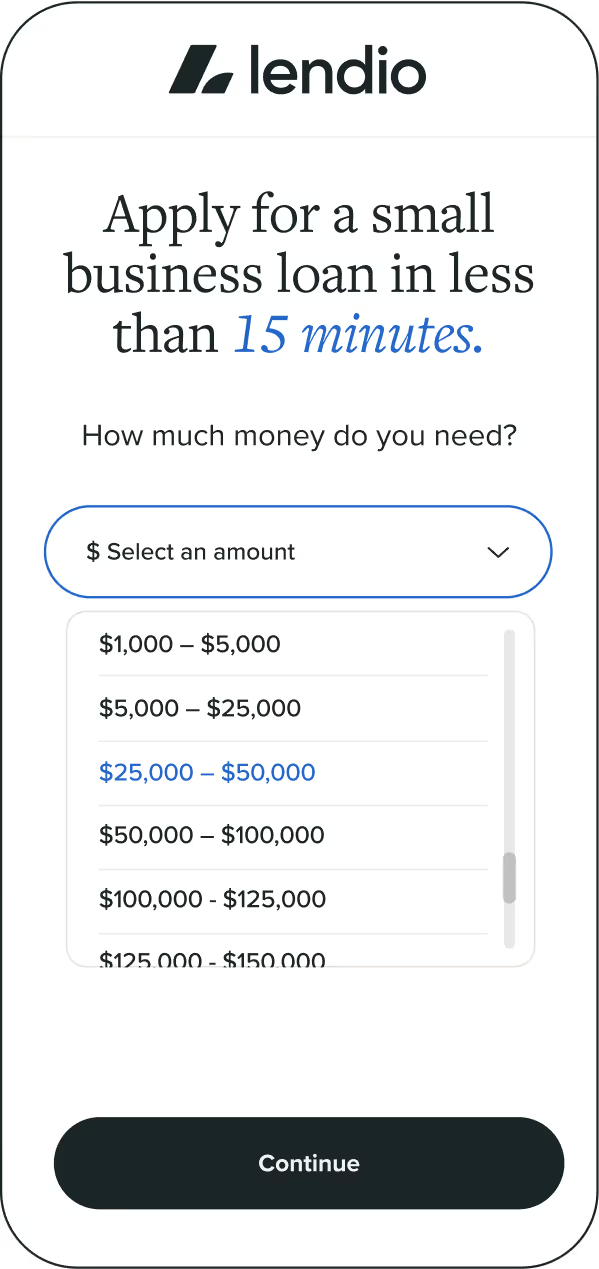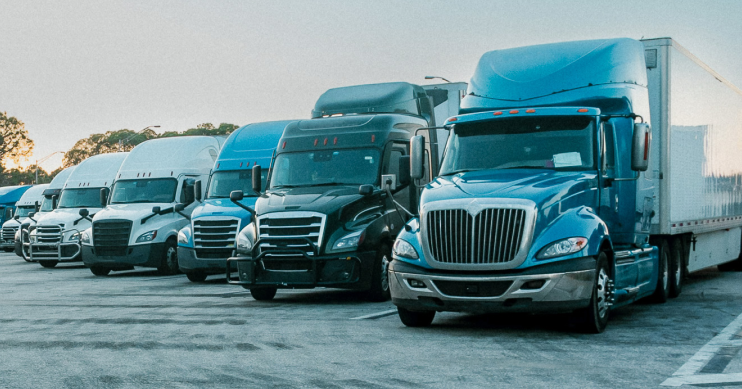SBA loans to buy, build, or grow your business.
Government-guaranteed loans that make long-term financing more accessible.
What is an SBA loan?
An SBA loan is a loan program partially guaranteed by the U.S. Small Business Administration, designed to make long-term financing more accessible for small businesses. These loans are issued by approved SBA lenders, like banks and credit unions, and can be used to start, grow, or expand your business.
Because SBA loans offer lower rates and longer terms, the eligibility criteria is more strict than other small business loan types. You'll typically need good credit, a few years in business, sufficient revenue, and detailed financial documentation.
Want to know if your business qualifies?

Interest rates and terms built for growth.
SBA loans are designed to be more affordable and flexible than most traditional financing options. With lower interest rates and longer repayment terms, they're built to support sustainable business growth.
Rates are tied to the prime rate, and vary based on the loan program, lender, and borrower qualification.
SBA loan repayment terms can range from 10 to 25 years, depending on how you use the funds.

Apply with confidence—and your dedicated SBA team.
Getting an SBA loan doesn't have to be complicated. With a proprietary application platform that makes uploading documents fast and easy and a dedicated SBA team on call to answer any questions you have and assist you throughout the funding process, we’ve made it as easy as possible for business owners to access an SBA loan.
Want to know what to expect before you apply? Read our guide to applying for an SBA loan, or start your application now and let our team help you move forward with confidence.
What types of SBA loans are available to small businesses?
SBA 504 loans
Use SBA 504 loans to purchase or update fixed assets like land, commercial property, or large equipment.
This SBA program is ideal for businesses looking to expand operations or upgrade facilities.
SBA 7(a) loans
SBA 7(a) loans are the most flexible option for small businesses, and can be used for working capital, refinancing business debt, purchasing equipment, or funding a business acquisition.
There are several types of 7(a) loans in this program depending on your business needs.
SBA Microloans
Use SBA Microloans to cover everyday business expenses like working capital, inventory, repairs, or equipment purchase.
These smaller loans are ideal for startups, traditionally underserved, or newer businesses that need flexible funding in smaller amounts for working capital, repairs, or improvements.
Minimum requirements for an SBA loan.



*Qualification criteria, rates, and other funding terms will vary depending on the type and location of your business, and upon other factors. This is not a guarantee of funding, and it should not be relied upon as an accurate assessment of the availability or terms of the represented funding products.
How to apply for an SBA loan with Lendio.
Tell us about your business.
Answer a few simple questions, upload your documents, and complete the application in minutes.
Submit your application.
We’ll present your application to the 75+ lenders in our marketplace, including SBA-approved lenders. Applying is free and won’t impact your credit score.
Compare offers.
Find the funding option with the terms that best fit your small business goals.
Get funded.
Once you accept, get funded in as fast as two weeks, thanks to Lendio's special application process and dedicated SBA team.


14+ years of serving small businesses.
Get the answers and the funding you need with support all along the way.
in small business funding facilitated in the last decade.
21,500 Trustpilot® reviews.
50% repeat customers.
total small business loans funded in the last decade.
FAQs
Find answers to some commonly asked questions about SBA loans.
The first step to applying for an SBA loan is choosing what type of SBA loan you want. There are 6 types of SBA loans including CAPLines, a business line of credit. Each type has its own set of advantages you’ll want to consider—from higher loan amounts, lower interest rates, or longer maturities.
After you’ve submitted your loan application to your chosen lender, you may be contacted for further questioning by a loan underwriter. Make sure to answer any questions you receive as quickly as possible so your loan application can proceed.
Typically, a soft underwriting process occurs next, followed by a loan proposal—if the lender initially likes what it sees. A loan proposal outlines the loan’s terms and lists out any additional fees that accompany the loan. Once signed, a more stringent underwriting process begins.
If your application passes through this second round of underwriting, you’ll be sent a commitment letter by the lender, and move through the SBA loan closing process.
No, but they are partially guaranteed by the US government. Private lenders are responsible for disbursing the entire loan amount to the borrower, and the US government only gets involved if the borrower defaults on the SBA loan. Depending on the loan amount, the SBA may insure up to 85% of the loan, which equates to less risk for lenders. This reduced risk means that lenders are able to offer lower interest rates.
When compared to other financial products available to small businesses, SBA loans can be considered the most difficult to get mainly because of the eligibility requirements and application length. With underwriting, most lenders can take up to 3 months to approve or deny an SBA loan. With Lendio’s special application process and dedicated SBA team, time to funds can be reduced to as fast as two weeks.
SBA loans have specific eligibility requirements that businesses and business owners must meet. These include:
- The business is a for-profit business
- The business has been in operation for 2 years
- The business operates, or will operate, in the United States or its territories
- The business owner must be able to prove that they have used or tried alternative financial resources before seeking an SBA loan
- The business owner has a reasonable amount of equity in the business
- Business owner is a US citizen or a valid Visa holder
Yes, SBA loans must be paid back. When a borrower agrees to the loan agreement of an SBA loan, they are agreeing to pay back the loan principal with interest.
SBA grants, however, don’t have to be paid back.
No. If an SBA loan is cancelled, collateral used to secure the loan may be liquidated. After liquidation the loan is settled by the SBA and bank.
Ready for funding?
See what you can qualify for on the Lendio Marketplace.








